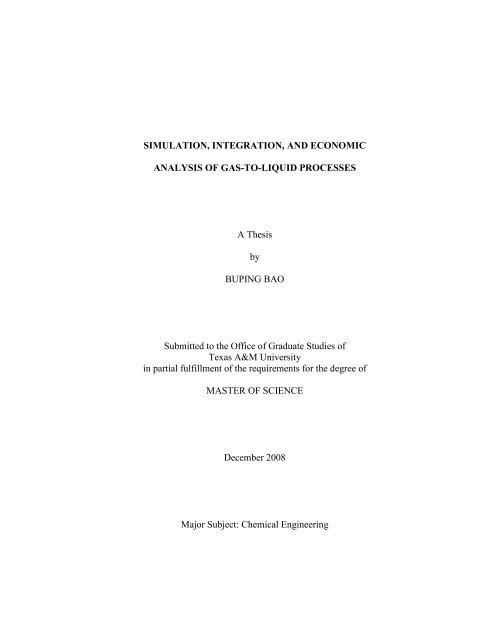

#CHEMICAL PROCESS SIMULATION DEGREE FREE#
Four blocks (approximately one year) of cooperative education experience, mathematics and science courses, free electives, and liberal arts courses round out the curriculum. A capstone design experience in the fifth year integrates chemical engineering theory, principles, and processes in a collaborative team environment. These electives may be chosen from those offered within the major, as well as from a department-approved list of engineering courses offered throughout the college.
#CHEMICAL PROCESS SIMULATION DEGREE PROFESSIONAL#
Students choose professional technical electives that provide a more depth examination of the chemical engineering field or provide breadth in other engineering disciplines. The core curriculum of the chemical engineering major provides students with a solid foundation in engineering principles and their underlying science. Using their knowledge of scientific principles (physical and organic chemistry integrated with physics, mathematics, and biology) and design constraints (such as economics, environmental requirements) chemical engineers develop processes to manufacture raw materials with desired purity on a scale that meets the demands of virtually every industry in our modern society. Chemical engineers utilize the work of chemists to build processes to manufacture and purify chemicals and new materials on a larger scale. Typically, chemists develop new molecules via chemical reaction, examine the underlying mechanisms involved, and make precise measurements of both physical and organic chemistry parameters on a bench scale in small volumes. Perhaps the clearest distinction can be made in the area of chemical transformation. The line between the functions of chemists and chemical engineers can be blurred, but a general distinction can be made between the function of the two disciplines. Key applications include the development of alternative energy systems, biomedical materials and therapies, and strategies to minimize the environmental impact of technological advancements. Examples include nano-scale composites, pharmaceuticals, plastics, fibers, metals, and ceramics. They work in multidisciplinary teams to create novel materials that are at the heart of virtually every product and service that enhances our quality of life.

Chemical engineering applies the core scientific disciplines of chemistry, physics, biology, and mathematics to transform raw materials or chemicals into more useful or valuable forms, invariably in processes that involve chemical change. Virtually every aspect of a modern industrial economy is critically dependent upon chemical engineering for manufacturing bulk and specialty chemicals and high-tech materials needed to create a limitless array of value-added products. How is Chemical Engineering Different from Chemistry? The program provides training to address this emerging need. While chemical engineers have always excelled at analyzing and designing processes with multiple length scales, modern chemical engineering applications require this knowledge to be extended to the nano-scale. They also learn to tie together phenomena at small scales (micro- and nano-scale) with the behavior of systems at the macro-scale. Students develop a firm and practical grasp of engineering principles and the underlying science associated with traditional and emerging chemical engineering applications. A special focus on process engineering cultivates a systems perspective that makes chemical engineers extremely versatile and capable of handling a wide spectrum of technical problems. Chemical engineers contribute significantly to advances in the food industry, alternative energy systems, semiconductor manufacturing, and environmental modeling and remediation. Well-known contributions include the development and commercialization of synthetic rubber, synthetic fiber, pharmaceuticals, and plastics. They not only create new, more effective ways to manufacture chemicals, they also work collaboratively with chemists to pioneer the development of high-tech materials for specialized applications. The chemical engineer provides the critical level of expertise needed to solve problems in which chemical specificity and change have particular relevance.

All engineers employ mathematics, physics, and engineering to overcome technical problems in a safe and economical fashion.


 0 kommentar(er)
0 kommentar(er)
